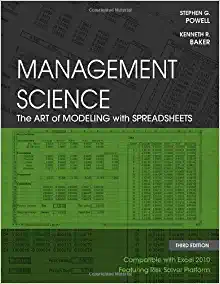Answered step by step
Verified Expert Solution
Question
1 Approved Answer
Most people expect to have some culture shock, but few are prepared for the challenges of re-entry shock. What are the differences between the two?

Most people expect to have some culture shock, but few are prepared for the challenges of re-entry shock. What are the differences between the two? Why would people experience this stress when returning to their comfortable, well-known culture?
 1. The degree of cultural difference between the home culture and the host culture is likely to be a source of discomfort to the degree that the value systems, level of economic development, and behavioral standards of the host country were significantly divergent from home 2. The degree of cultural immersion (or cultural isolation) the students experienced while overseas will play a major role in their positive or negative evaluation of their time abroad and impact significantly upon how they view their return. Although there is great variation, in general, the greater the success students have had in appropriately fitting into another culture, the more difficulty they have in coming home. 3. Contrast between an individual's status in the host country and status at home can have a large influence on how he or she views the return. . 4. Those students with prior intercultural experience, including reentry, are likely to be better able to cope with the transition experience of coming home, while the first-time returnee may exhibit a wide range of reactions during readjustment. Although this is generally true, it is possible to have no reverse culture shock returning from a first stay abroad but suffer severely from it after a subsequent sojourn. 5. A significant variable in reentry is the motivation for returning. A forced return can lead to resentment (issues of power and control also play a role here). If you returned home for academic, medical, or financial reasons before you were ready, there can be feelings of dislocation, unfinished business, failure, and loss. A voluntary early return due to inability to adjust while overseas can have similar impacts. Successful overseas sojourners will see the return as completion, opportunity, and reunion. A reluctant returnee is likely to be at least temporarily dysfunctional. 6. The question of the expectations of the returnee is complicated by the degree to which those expectations are realistic or idealized. Whether they were realistic or not, if the expectations are not met, it will strongly impact the reentry process
1. The degree of cultural difference between the home culture and the host culture is likely to be a source of discomfort to the degree that the value systems, level of economic development, and behavioral standards of the host country were significantly divergent from home 2. The degree of cultural immersion (or cultural isolation) the students experienced while overseas will play a major role in their positive or negative evaluation of their time abroad and impact significantly upon how they view their return. Although there is great variation, in general, the greater the success students have had in appropriately fitting into another culture, the more difficulty they have in coming home. 3. Contrast between an individual's status in the host country and status at home can have a large influence on how he or she views the return. . 4. Those students with prior intercultural experience, including reentry, are likely to be better able to cope with the transition experience of coming home, while the first-time returnee may exhibit a wide range of reactions during readjustment. Although this is generally true, it is possible to have no reverse culture shock returning from a first stay abroad but suffer severely from it after a subsequent sojourn. 5. A significant variable in reentry is the motivation for returning. A forced return can lead to resentment (issues of power and control also play a role here). If you returned home for academic, medical, or financial reasons before you were ready, there can be feelings of dislocation, unfinished business, failure, and loss. A voluntary early return due to inability to adjust while overseas can have similar impacts. Successful overseas sojourners will see the return as completion, opportunity, and reunion. A reluctant returnee is likely to be at least temporarily dysfunctional. 6. The question of the expectations of the returnee is complicated by the degree to which those expectations are realistic or idealized. Whether they were realistic or not, if the expectations are not met, it will strongly impact the reentry process Step by Step Solution
There are 3 Steps involved in it
Step: 1

Get Instant Access to Expert-Tailored Solutions
See step-by-step solutions with expert insights and AI powered tools for academic success
Step: 2

Step: 3

Ace Your Homework with AI
Get the answers you need in no time with our AI-driven, step-by-step assistance
Get Started


